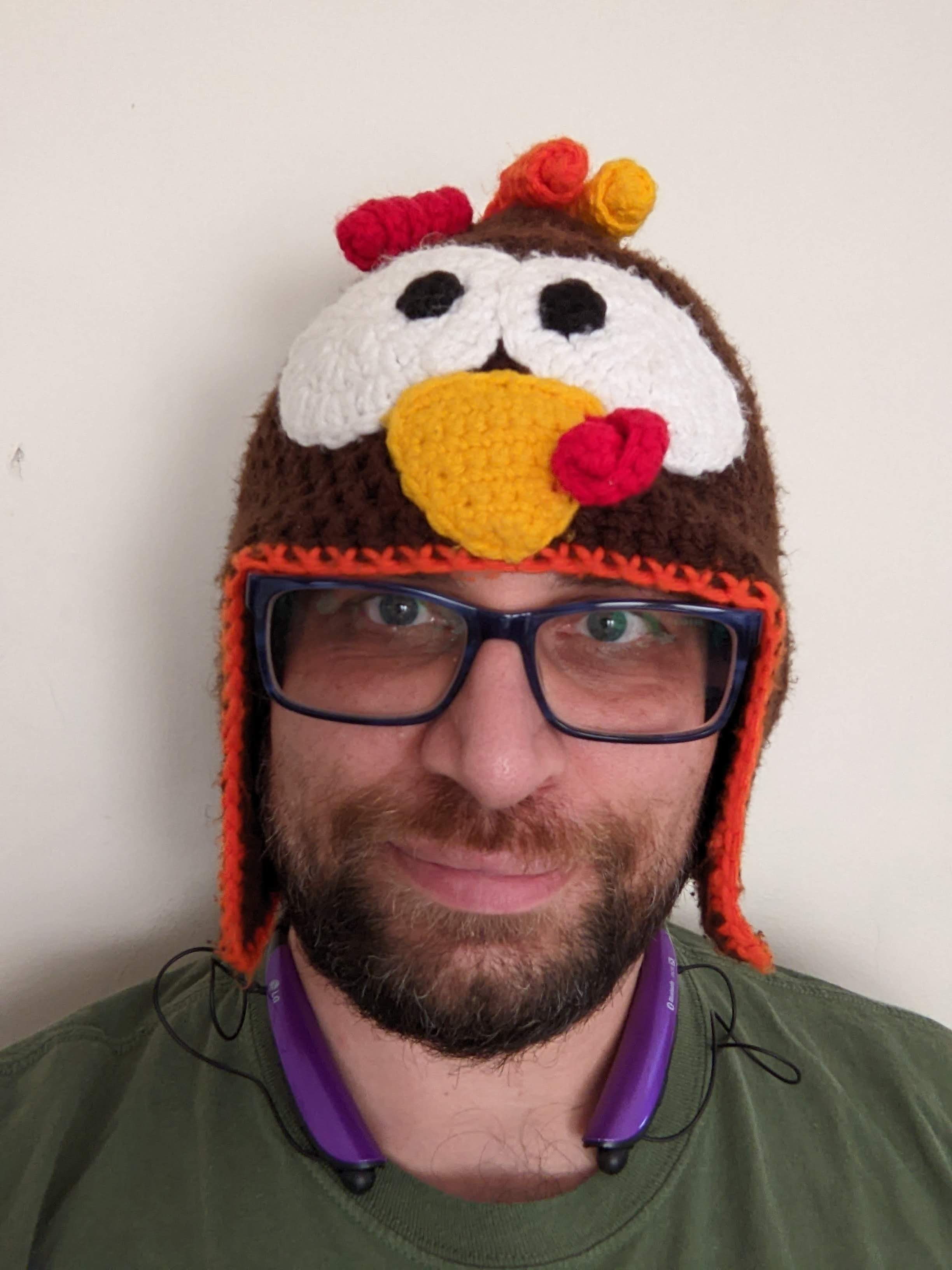I’m asking because it’s a very normal thing to do here.
When you enter a room, but also things like a hairdresser or say a small cafe, you say hello to the people there and say goodbye when leaving. Or when taking a bus, you say hello to the driver and goodbye or thank him when getting off.
I was only recently told by some online friends of mine that this is pretty weird in other places. So I’m wondering if I’m (or my country) is the weird one or them
American here. Really it’s about context. On busses is can be polite to thank the driver when exiting. Depending on the barber saying hello to everyone might be normal too. But no I don’t think I’ve ever walked into a dentists office and been like’ hi! Everybody!” It’s more a walk in tell someone you’re here and sit on your phone until called.
deleted by creator
In the UK you might say a sheepish hello to the person(s) next to you in the waiting room but never to the whole room, that would be… uncomfortable. It might also prompt a conversation when you just want to ignore the world until you’re called.
It’s hard to describe, maybe it’s the feeling that you don’t greet someone unless you’re going to engage in conversation with them? If someone came into the doctor’s waiting room and said hi, it wouldn’t feel rude, just… odd.
deleted by creator
deleted by creator
deleted by creator
I live in the UK so this would be greeted with suspicion. 😆
Same here in America. People are going about their days and don’t want random people sticking their noses into other people’s business.
Maybe if you’re sitting next to someone for awhile you might strike up a conversation. Maybe. (“Boy, they’re taking a long time today. Must be short staffed!”) But I don’t recall this ever happening with me and I’ve been to my fair share of doctor’s offices over the years.
Wouldn’t be considered a faux pas in my area of the US to greet a room even if it’s rarely done. You just likely wouldn’t get a verbal response or likely even any acknowledgement. Some head nods and smiles maybe. General greetings don’t require a response.
deleted by creator
What do you mean by “the people there”?
The workers? Sure.
Other customers? Absolutely not.I’m from the Caribbean. It’s considered rude to enter a room without saying good morning/afternoon/night once and loudly enough that everyone can hear. No one has to answer but it’s polite to acknowledge. You don’t have to say anything when leaving tho.
This doesn’t apply to places that are loud, large, or where people are already socialising. So no to restaurants, bars and supermarkets, etc. But yes to hairdressers, small cafés, doctor’s offices, and small offices in general.
As a Brit, this is as lovely to me as it is strange!
Latin America is like this, too.
You can tell your friends if they ever got off the internet they’d find the world is not a place of homogenous societal customs.
In America, you might greet a single person that acknowledges you, like a worker, but not the general room.
This is like a small town custom where everybody knows one another. So even though it’s a new setting, it’s all mostly the same people. Not saying anything is actually perceived as rude. Lol
I wouldn’t expect this in a big city though. Especially if it’s a doctors office. Typically people there for private medical issues, not for socializing with strangers. Exception here is if I actually see someone I know.
On occasion the staff will say “hi” and “bye” on entering and leaving but that is more of a trained behavior than natural.
in finland you dont and if you do you will be likely silently judged. at most you might greet the workers but even that mostly only if they greet you first
(US) I greet the receptionist and the person I’m about to sit next but only if they make eye contact. I just give them a quick rhetorical “How’s it goin?”
“How’s it goin?”
Please no. Don’t ask a question you don’t want the answer to. Then my awkward ass is sitting there knowing I need to say “I’m good. How are you?” despite me not caring and I could be on the brink of a mental catastrophe. For us awkward people, please just say “Hi.”
Full disclosure, you might get me at one of my more angsty moments and I’ll start talking your ear off about how terrible my life is going and fill in all the unnecessary details (mostly all lies). I’d do this as a punishment for asking a question you clearly didn’t want the answer to in the first place.
Did I mention I’m awkward?
The trick is to just respond with “Hi” then look away. Conversation over.
I already do this but still find it annoying when randos do this especially in places like the bus where I can’t easily get away if they try to talk more.
Don’t ask a question you don’t want the answer to
These are called Phatic Expressions, and every culture has some version of them. Unfortunately, they aren’t really going anywhere, so it’s good to familiarize yourself with which questions in different cultures don’t require a response matching the question. A good example, as Tom mentions, is the famous “y’alright?” in the UK. They aren’t asking for a run down of your day, it’s just a societal greeting without any expectations.
I’d do this as a punishment for asking a question you clearly didn’t want the answer to in the first place.
They aren’t asking these questions to be unnecessarily nosy, so I’d advise against the passive aggression because people who greet others this way are well-meaning. I highly recommend that video to put these into perspective from the greeter.
So I meant that mostly tongue in cheek. However it’s cool to see there’s a term and use for it. In general I dislike small talk but will usually engage as minimally as possible just to be polite.
That’s fair. Yeah it’s definitely meant for even less than small talk; “minimally as possible” is the general sentiment behind phatic expressions in the first place.
Then my awkward ass is sitting there knowing I need to say “I’m good. How are you?”
You don’t have to say that.
- “It goes.”
- “Another day, another doughnut.”
- “How’s it going?” - people really won’t be surprised if you just don’t answer at all.
- “I’ve been worse.”
- “If I complained, who’d listen?”
- “Hi.”
- “Hey.”
- “No news is good news.”
In the context of random people who don’t know each other, it basically just means “I acknowledge your existence”. Acknowledge their existence and you’re good.
Can you really not tell the difference between a quick “how’s it going” (which should elicit nothing more than a nod) and a boisterous “how’s it going?!” (which should elicit a conversation between acquaintances)?
To be fair, it is genuinely difficult for some people to distinguish tone and meaning from a question like that, particularly for those with autism.
I say that as a greeting but if you really want to answer it, I will listen and respond with a “Not bad…You?” because I’m also awkward.
Ok, but that’s not a greeting. That’s a question
It is but that’s what some people do. It’s common. Like I said, I will listen if people choose to actually answer. I won’t be rude about it.
German here. According to my experience, on some places you’re the weird one not greeting.
Doctor’s waitimg room: greet and goodbye expected.
Bus: Usually you enter in front and leave in the back, so only greet the driver, usually.
Nature/dog walk: Indifferent. Usually we greet everyone we meet, due to the shared nature experience probably. And usually nobody greets back. If you make room for cyclists, nobody says thanks or even breaks a bit to give you more time to get out of their way. Last weekend, however, everybody we met greeted first, and every cyclist breaked and said thanks, which was a remarkably strange but positive experience.
Office/company grounds: I tend to greet everyone. Except for a few who regularly don’t greet back. Usually at least saying “hi” once a day is expected.
What miffes me most is that most people here are reluctant to thank for services provided (cashier, doc’s assistant, cleaners, security…). As if these hardest working people somehow were invisible, or machines.
Here in the US, there are a lot of regional cultures so the “rules” vary a lot from place to place. Using one of your examples, it’s very common where I live to greet the driver when you get on a bus and thank them when you leave. But I’ve been told that would seem weird in other parts of the country.
I would never greet an entire waiting room at a doctor’s office. I’d assume most of the people there are anxious and/or not feeling well and not in the mood for social interaction. Excluding organized events (conferences and meetings and the like), I can’t think of any circumstance where I would say hello to an entire room of random strangers.
PNW here, most people don’t really greet the driver on the bus but a lot of them do thank the bus driver when leaving the bus so that’s interesting.
And yeah, no one is greeting a room full of strangers up here. No way in hell.
It tends to happen in smaller towns here in Canada, but not in bigger towns or cities. I think it’s mostly a social fatigue thing. When you only meet 10 people on a day out, it’s not taxing to have more of a personal encounter with them. But if you regularly see 100+ people, it would be too much to acknowledge each one socially, even just with eye contact and a group greeting. I would have drained my social battery before even making it to my first destination.
But back in a small town, I say hi to every single person I meet. Though not usually bye. I am a relatively asocial person, but I do try to at least treat people how they want to be treated. I’m autistic, so most of my social behaviour is prompted by cues, rather than being something I “feel like doing”. But it also makes trends like that pretty noticeable to me. I can vaguely tell when I’m making people uncomfortable, but I usually have to guess why specifically, most people won’t tell you, even if you ask. Hehe. But because of that, I over-analyze all social interactions. And I have a close group of friends that have stuck with me and help me out. It’s very helpful to have feedback from their perspective. It has helped me to hone my own manufactured social skills and protocols to seem alot like a normal person most of the time. When inside I feel more like a robot programmed to resemble a human, lol.
But yeah, in Canada that resembles small town social behaviour. The rest is just guesses by me.
Do you live in a smaller community, where it’s likely that you know the people there?
deleted by creator
I’m an introvert, but that does sound pleasant.
I live in a large US city, and it’d be considered weird to greet patrons of an establishment I didn’t yet know as an acquaintance. Greeting staff however is good, and a good way to build familiarity.
In rural communities in the Midwest, I find it safest to say a polite hello, target that risk rudely snubbing my best friend’s uncle who hosted that terrific Fourth of July party this year.
Germany: A quick nod (head down, not head up) or a one word greeting (morgen, servus, moin, tach) would feel appropriate. But silence usually also is fine unless you’re in a really tight knit communities maybe.








